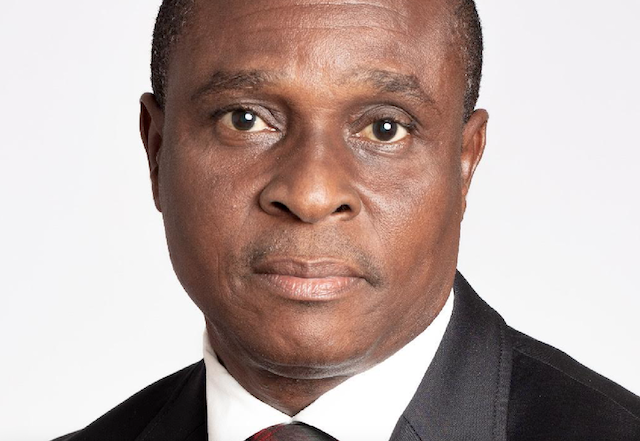Over the past two decades, there have been several attempts by governments in Nigeria to find alternatives to imported wheat flour used mainly in bread making. Cassava flour was forcefully promoted as a replacement or complete option in the quest for fair comparative advantage to boost local production as well as reduce dependence on imports and the number of dollars spent on flour-dependent foods.
About the same period, New Rice for Africa (NERICA) was promoted by the West African Rice Development Agency. Nerica is a hybrid, rain-fed specie of rice developed through a collaboration between African and Asian scientists. The pilot scheme in Nigeria across the six geopolitical zones showed early promises that indicated that if we remained on track, rice imports will end. NERICA is now RiceAfrica. This specie of rice has won many global awards not only because of its super yield but combined with its rich protein content, it is helping to solve the world’s hunger crises where it is needed most –– Africa.
In Kenya, a newly developed hybrid climate-resistant corn seed, DroughtTEGO. Bill & Melinda Gates Foundation claims that this ‘magic seed’ is producing an average of 66% more grain per acre. There is indeed more research into how to boost agricultural harvest to feed Africa. International agencies and foundations account for nearly 80% of these efforts.
Most Nigerians self-glorified their own brand of resilience and patted themselves for the superior gene of the African, nay Nigerian, which resisted the Covid-19 pandemic. “They thought we would die in numbers, like chickens on the roads”, many enthused. But while the dance to the pyrrhic victory was going on, the world had changed. And behold we were affected far worse than physical death –– massive job loss, more unemployment, and more people streaming into extreme poverty. There was also crops failure occasioned by extreme weather conditions and insecurity of farmer spaces and farmlands. Then we discovered that the prices of food were increasing daily.
We learnt the importance of Russian and Ukraine to bread and other pastries. We became aware that “14 African nations relied on Ukraine and Russia for half their wheat. Now, those shipments were cancelled, and the supply shock spiked the price of replacement wheat to its highest level in 40 years. Prices eventually started falling in May, but in the Interim, there were the makings of a modern famine, with world leaders sounding the alarm bell, calling for an influx of aid—money and pallets of food to be shipped to sub-Saharan ports immediately.” It is now evident that the Covid-19 and grain shipment cancellations affected us in numbers. Our government relied on food aid from Europe which the government of the day channeled towards the North East only. Certainly, with no tools to predict the food cycle majority of the population was dragged into poverty without the essential things of everyday living.
Moses Ojeisekhoba, Swiss Re’s Chief Executive Officer, Reinsurance, is a Nigerian and British. He has granted me permission to adapt his article, “Where were you when the world changed” to our peculiar environment. But to get the full grasp of this piece, I had prefaced it with the many opportunities and policies that would have spared this country the serious poverty index which has dangerously escalated in the last decade. While the rest of the world kept pace with the dynamics of an evolving world order using tools to predict and reorder the mechanics of existence on earth, Nigeria ignores the important instruments of resilience and governance structures that promote sustainability. Aside from these acts of negligence, the government does not pay attention to statistics which today has evolved into the powerful data tool driving economies.
Ojeisekhoba says; “The pandemic and Ukraine invasion have accelerated the transition to a multi-polar world order, with a few large powers creating something distinct from the unipolar system that emerged from the Cold War. The dimensions of the shift may be open to debate, but it’s clear the current system is moving rapidly to something new. Re/insurers are partnering with clients and society to shape and stabilise this new era, as supply chain, climate and food and energy security risks grow more complex.
Peeling back the layers of human history, we see patterns that observers likely missed at the moment. For instance, the Sumerians and Egyptians who began drafting the first written records 5,000 years ago may not have immediately grasped the revolution they were unleashing. There probably wasn’t somebody standing there by the Nile saying, “I was there when the world changed.”
Even so, time and perspective had taught us how this marked the juncture when humankind emerged from its pre-historic darkness, clearing the way for the rapid development of religion, education, philosophy, science, and law – in short, the foundations of modern civilisation. Nothing would ever be the same again.”
He affirmed that the world has arrived at a “critical turning point for civilisation: The transition from a unipolar to a multi-polar world order and referencing Swiss Re’s latest sigma publication, entitled “Maintaining resilience: the role of P&C insurers in a new world order,” he declared; “our experts document forces shaping this new paradigm. In the making for some time, this shift has been catalysed by both the pandemic and war in Ukraine.”
The nature of the new world order
“This new order is a more fragmented construct than what followed World War II. The dominant system of governance and cooperation is unravelling, probably irreversibly, posing challenges to the multilateralism we once counted on to promote global stability. Power centres such as China, Europe, India and the United States are set to redefine multilateralism, not exactly abandoning cooperation, but instead pursuing relationships more strongly defined by their individual interests.
Amid this sea change, we see a role for P&C re/insurers, to facilitate as orderly a transition as possible. More than ever, our industry must step forward as an agent of societal resilience.
Among the first significant new order features to emerge from the pandemic and Ukraine invasion is the re-alignment of supply chains to avoid future crisis-driven trade disruptions.”
Smoothing complexity of a rebooting system
This rebooting system, “with relocated facilities running in parallel, will require insurance solutions to smooth how business is conducted. Companies must increasingly harness data to overcome heightened complexity that will now accompany getting products from factories to customers, and insurance solutions will be critical in enabling this transition.
To mitigate climate change’s existential threat, the shift to a green economy was already unavoidable. Russia’s invasion of Ukraine has only heightened urgency, as leaders fret over energy security. Such a transition extends far beyond renewable energy, as virtually every element of the global economy requires reconfiguration in order to meet climate goals.
A third defining feature of this emerging order dominated by multi-polar blocs of economic influence is the potential for worsening disruptions to food supplies, a scenario that would accelerate widening inequality. Food prices were rising before Russia’s invasion of Ukraine; the invasion poured fuel on the fire. The most vulnerable are hurting the most.
Large swathes of Africa and south Asia face acute hunger while the United Nations says the number of people just a stumble away from famine has more than doubled since 2019 to 345 million; many are children. This problem is multi-faceted –– from energy costs, and fertilizer and grain supplies to climate-driven drought and the challenges inherent to feeding a growing population.
That’s why agriculture insurance, from parametric drought solutions to products that smooth out volatile production costs, is expected to assume a more important role in managing growing risks stemming from a multi-polar world order’s impact on the food-production value chain. Public-private partnerships involving the insurance industry will also be essential, to boost protection in markets that historically have been underserved”.
When the world changed
The world has changed! Changed in ways that it seems the whole world is in a rate race. The fast-paced existence demands that nations in Africa must walk the talk of self-reliance. “As a new multi-polar world order takes shape”, and rapidly redefines the way we perceive and respond to conditions of living, it is imperative that Nigeria demonstrates that leadership that situates it in Africa.
Ojeisekhoba notes, “while it may have taken humankind centuries to put previous shifts — including the one ignited by written communication, to return to my initial example — into their revolutionary place, technology now at our fingertips makes it possible to quickly assess, understand, and respond in real-time to the new order taking shape this time.
This is what I call data-driven risk knowledge. As re/insurers, it gives us the power to be the architects of our destinies, not merely passive observers of events. When we recall this moment in history, I’m optimistic we’ll be able to say that when the world changed in 2022, our industry was there not just to maintain resilience, but to strengthen it.”
In all these, is Africa taken into consideration? Has the most populous black nation on earth read through the myth or reality of the emerging world order? How is Nigeria aligning with the productive currents that deliver much control in our hands instead of being squeezed in-between forces that is out of our control? Nations are rising and falling but ours is only the impetus to rise, to challenge ourselves to be the best we can be in defence of the children, women and youths. We must not show ourselves to be men who beg other nations for food. The new world order will revolve around countries getting stronger unto themselves. Interdependence will always remain part of humankind’s ways of exchange but going forward, it will be defined by strengths and weaknesses.
We have also arrived at a critical juncture when we have to do a programmed catch-up with what is happening to our world. Those who plan to govern the country post-2023 general elections must with open hands embrace the new ways of doing things. The national interest must well be defined, strategically, to lead all policies of the government.
The original author of this adapted article, Moses Ojeisekhoba, studied Statistics at the University of Ibadan. He is the CEO, of Reinsurance at Swiss Re, the world’s largest reinsurer.



